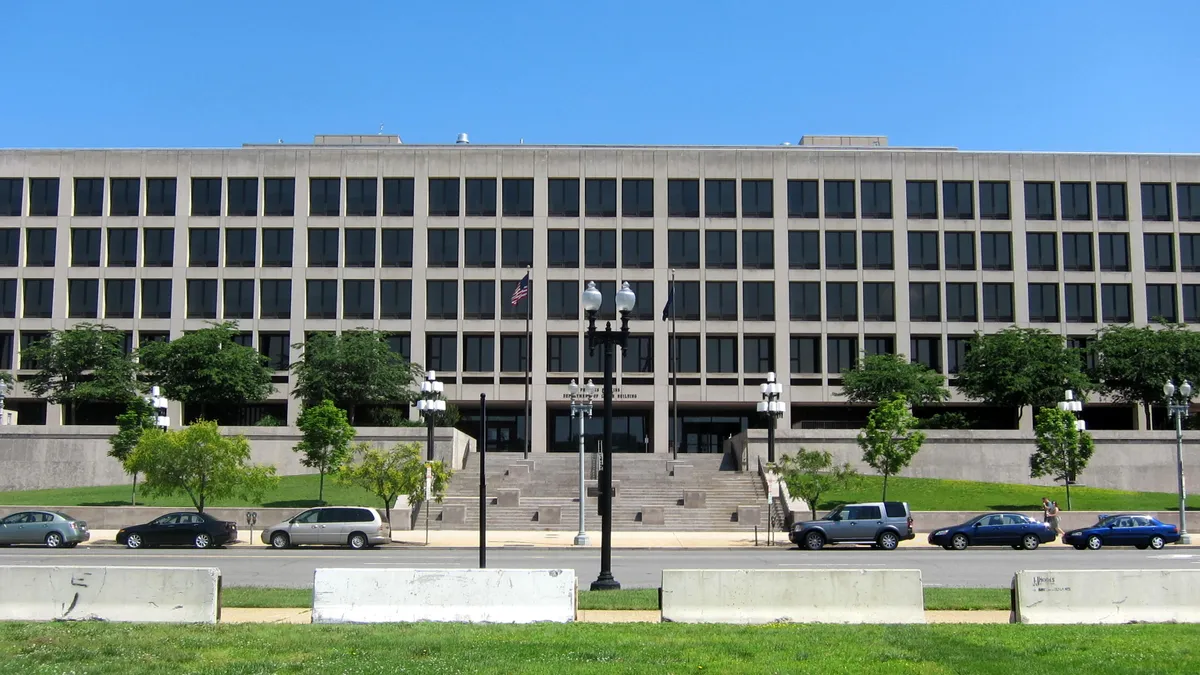Dive Brief:
- The U.S. Department of Labor (DOL) has again pushed back the date by which it plans to propose new regulations governing overtime exemptions from the Fair Labor Standards Act (FLSA), this time to March 2019. The announcement was made in the agency's fall regulatory agenda, and says that DOL's Notice of Proposed Rulemaking (NPRM) "will propose an updated salary level for exemption and seek the public’s view on the salary level and related issues."
- The announcement came alongside news that DOL plans to tackle joint employment under the FLSA via regulations as well. That NPRM, slated for December, "will propose to clarify the contours of the joint employment relationship," DOL said, because "changes in the 21st century workplace are not reflected in [the] current regulatory framework."
- The agency's agenda also notes its continued plan to propose changes to its "basic rate and regular rate" requirements (expected in December) and to update tip pooling rules (coming this month).
Dive Insight:
DOL is aiming to update FLSA regulations that set a salary threshold below which employees must be paid overtime. Today, it remains at $23,660, after the Obama administration unsuccessfully attempted to raise it to $47,476. President Trump's DOL is expected to propose a threshold somewhere between $32,000 and $35,000.
These continued delays, however, could throw a wrench into DOL's plans. Tammy McCutchen, a former DOL Wage and Hour Division administrator from the Bush administration, has said there's a perfect storm of events that could ultimately put the $47,476 threshold in place, with little notice.
"I am worried because we still have [an] active 5th Circuit appeal," she told attendees at a conference earlier this year. DOL appealed the order blocking the original rules while President Obama was still in office but largely dropped it following Trump's inauguration. However, it remains paused as DOL works on new regulations. Employers need not panic just yet, she said, but they may want to hold onto their plans from 2016, she said.
As for joint employment, stakeholders have been begging for some clarity on this standard that creates joint liability for employment law violations in arrangements that involve, for example, franchises or staffing agencies. Confusion abounds on this standard under both the FLSA and the National Labor Relations Act. The agencies responsible for implementing these laws have both tried to move away from employee-friendly Obama-era interpretations, but haven't yet moved the needle in a meaningful way. Both are now attempting to do so via rulemaking, but some have also asked Congress to step in and set one definition for both laws.













